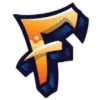What Does NFT Stand for in Gaming: A Comprehensive Overview What Does NFT Stand for in Gaming: A Comprehensive Overview When it comes to the world of gaming, there are always new and exciting developments. One of the latest buzzwords you may have heard is NFT, but what does it actually stand for and how
What Does NFT Stand for in Gaming: A Comprehensive Overview
What Does NFT Stand for in Gaming: A Comprehensive Overview
When it comes to the world of gaming, there are always new and exciting developments. One of the latest buzzwords you may have heard is NFT, but what does it actually stand for and how does it relate to gaming? In this comprehensive overview, we’ll delve into the intricacies of NFTs, exploring their definition, function, and potential impact on the gaming industry.
NFT stands for non-fungible token. To understand this term, let’s break it down. “Token” refers to a unit of value that can be digitally represented and transferred. “Non-fungible” means that each individual token has a unique value or characteristic which sets it apart from other tokens. Unlike cryptocurrencies such as Bitcoin or Ethereum that are interchangeable with one another (each Bitcoin is equivalent to every other Bitcoin), NFTs represent something distinct and irreplaceable.
So how do these non-fungible tokens come into play within the gaming world? In recent years, game developers have been exploring ways to integrate blockchain technology – the underlying infrastructure behind cryptocurrencies – into their games. This integration led to the creation of NFTs specifically designed for gaming purposes.
NFTs in gaming function as digital assets with verifiable ownership and scarcity. Let’s consider an example to illustrate this concept. Imagine playing your favorite online game where you collect virtual items like weapons or cosmetic skins for your characters. Traditionally, these digital assets would be stored on centralized servers controlled by the game developer. However, through NFT technology, these assets can now exist as unique tokens tied to your virtual identity on a decentralized blockchain network.
The introduction of NFTs brings several benefits to both gamers and developers alike. For gamers, owning an NFT means having true ownership over their digital assets rather than mere access granted by a centralized entity. They can buy, sell, or trade these assets directly with other players, creating a thriving in-game economy. This new level of ownership fosters an engaging experience and allows players to monetize their time and effort spent within the game.
As for developers, NFT integration opens up new revenue streams. With each sale or trade of an in-game asset represented by an NFT, developers can earn a percentage of the transaction as royalties. This incentivizes game creators to produce high-quality and sought-after items, enhancing the overall gaming experience for everyone involved.
It’s important to note that while NFTs offer exciting opportunities, there are also challenges to consider. The concept of digital scarcity relies on a delicate balance between supply and demand. If too many identical NFTs flood the market, their value may decrease significantly. Additionally, concerns have been raised regarding environmental impact due to the energy-intensive nature of blockchain networks.
In conclusion, non-fungible tokens (NFTs) are revolutionizing the gaming landscape by enabling true ownership of digital assets through blockchain technology. Both players and developers benefit from this innovation through enhanced gaming experiences and new revenue streams. However, careful consideration is necessary to maintain the delicate equilibrium between supply and demand.
So next time you come across the term “NFT” in relation to gaming, you’ll be equipped with a comprehensive understanding of its meaning and potential impact on this ever-evolving industry.
Understanding NFT in Gaming: Step-by-Step Guide
Welcome to our detailed and comprehensive guide on understanding NFTs, specifically in the fascinating world of gaming. By the end of this blog, you will have a thorough grasp of what NFTs are, their significance in the gaming industry, and how they work hand in hand with blockchain technology. So, fasten your seatbelts as we embark on this exciting journey into the realm of NFTs!
To kick things off, let’s break down what exactly an NFT is. NFT stands for non-fungible token, which may seem like a mouthful but fear not – it’s actually quite simple. In essence, an NFT is a unique digital asset that cannot be exchanged on a one-to-one basis like other cryptocurrencies such as Bitcoin or Ethereum. Think of it as owning a rare item or collectible in the digital space.
Now you might be wondering how exactly these NFTs relate to gaming. Well, picture your favorite video game where you can acquire various virtual items like weapons, skins, or even entire characters to enhance your gameplay experience. Traditionally, these items were solely under the control of the game developer and had no real-world value beyond their use within the game itself.
Here’s where NFTs come into play – they introduce ownership and scarcity to these virtual assets. With an NFT-based system integrated into games, players now have true ownership over their acquired virtual items. These assets are stored securely on a blockchain network that ensures transparency and permanence.
But why is this such a big deal? Well, imagine having collectible cards from different games that you can trade and sell just like physical cards in real life. With NFTs in gaming, players finally have the ability to truly own their virtual assets outside of any specific platform or game.
Blockchain technology forms the backbone of these NFT ecosystems by providing transparency and security through decentralization. Each transaction involving an NFT is recorded on a public ledger, making it practically impossible to counterfeit or manipulate. This ensures the rarity and uniqueness of each NFT, giving them their value.
Now that you understand the basics, let’s dive into the step-by-step process of acquiring and utilizing NFTs in gaming:
Step 1: Set up a digital wallet – To begin your journey into NFT gaming, you’ll need a digital wallet that supports blockchain technology. Popular options include MetaMask or Trust Wallet. These wallets act as your personal vault for storing and managing your NFTs.
Step 2: Choose the right platform – There are numerous platforms out there where you can buy, sell, and trade NFTs specific to gaming. Some examples include OpenSea, Rarible, or NBA Top Shot. Each platform has its own unique offerings and user interface, so browse around and find one that suits your preferences.
Step 3: Connect your wallet to the platform – Once you’ve chosen a platform, connect your digital wallet to it using the provided instructions. This will allow you to interact with the marketplace seamlessly.
Step 4: Browse and acquire NFTs – Now comes the exciting part! Explore the marketplace for gaming-related NFTs that catch your eye. You’ll find a myriad of options ranging from in-game items to exclusive artwork inspired by popular games.
Step 5: Make informed decisions – Before purchasing an NFT, do your due diligence. Research the creator’s reputation, rarity of the item or artwork, and any associated rights or utility it may possess within specific games.
Step 6: Auctions and listings – Some platforms offer auctions where you can bid on highly sought-after items while others provide fixed-price listings. Keep an eye out for these opportunities as they often present unique chances to acquire valuable assets.
Step 7: Enjoy ownership – After successfully acquiring an NFT, revel in your newfound ownership! Display your collectibles proudly, boast about them to fellow gamers, or even trade them for other NFTs you desire.
Remember, NFTs in gaming are a rapidly evolving landscape. As the technology continues to develop and gain mainstream adoption, we can expect more innovative features and possibilities to emerge. So keep an eye on this space as it unfolds before our very eyes!
In conclusion, NFTs have revolutionized the gaming industry by granting players true ownership and value over their virtual assets. With blockchain technology providing transparency and security, these unique digital assets are changing the way we perceive and interact with games. So go forth, explore the world of NFTs in gaming, and embark on your own digital treasure hunt!
How Does NFT Revolutionize the Gaming Industry?
The gaming industry has always been at the forefront of technological advancements and innovations. From cutting-edge graphics to immersive virtual realities, gaming has constantly pushed the boundaries of what is possible. And now, with the rise of NFTs (Non-Fungible Tokens), a new revolution is taking place in the gaming world.
So, what exactly are NFTs and how do they revolutionize the gaming industry? NFTs are unique digital assets that can represent ownership or proof of authenticity for any kind of digital item, including artwork, music, videos, and yes, even in-game items. Unlike cryptocurrencies such as Bitcoin or Ethereum which can be exchanged on a one-to-one basis, NFTs cannot be exchanged like-for-like due to their unique properties.
One of the biggest ways in which NFT revolutionizes the gaming industry is by enabling players to truly own their in-game items. In traditional video games, players spend hours upon hours grinding for rare weapons or armor pieces only to have them exist solely within the game’s ecosystem. This means that if they decide to stop playing or if the game shuts down, all their hard-earned items become worthless.
With NFTs, players now have true ownership over their in-game items. These items are stored on blockchain platforms like Ethereum, ensuring transparency and security. This means that even if a game ceases to exist or lose popularity, players can still sell or trade their valuable virtual assets outside of the game environment.
This newfound ownership brings forth an exciting prospect for gamers: earning real-world value from virtual achievements. Imagine spending months mastering a difficult boss fight and obtaining a rare weapon drop only to be able to sell it for actual money afterwards! This opens up avenues for professional gamers and dedicated enthusiasts alike to monetize their skills and dedication.
But it doesn’t stop there – NFT technology also empowers developers by providing new revenue streams through item sales and auctions. Instead of relying solely on game purchases or in-game transactions, developers can create unique and limited-edition items that players can acquire through NFT sales. This not only generates additional revenue for the developers but also adds value and exclusivity to the gaming experience.
Furthermore, NFTs allow for a more inclusive and decentralized gaming ecosystem. By utilizing blockchain technology, gamers from all around the world can participate in seamless cross-platform trading, making it easier to connect with other players and exchange rare items. This eliminates the need for centralized marketplaces or questionable third-party websites where scams and fraud are common occurrences.
In conclusion, NFTs have brought about a paradigm shift in the gaming industry. By allowing players to truly own their virtual assets, facilitating new revenue streams for developers, and creating a more inclusive gaming ecosystem, NFTs revolutionize how we perceive and interact with video games.
So whether you’re an avid gamer looking to turn your passion into profit or a developer seeking innovative ways to engage with your audience, NFTs offer exciting opportunities that will shape the future of gaming as we know it. Strap in and get ready for a dynamic ride into this new era of digital ownership!
NFT and Gaming FAQ: Everything You Need to Know
NFT and Gaming FAQ: Everything You Need to Know
Welcome to our comprehensive guide on the intersection of Non-Fungible Tokens (NFTs) and gaming! In this FAQ, we aim to provide you with detailed information about the exciting world of NFTs within the gaming industry. Whether you’re a seasoned gamer or a newcomer exploring the latest trends, our witty and cleverly explained answers will help demystify any lingering questions you may have.
1. What is an NFT?
An NFT stands for non-fungible token, which represents a unique digital item stored on a blockchain. Unlike cryptocurrencies such as Bitcoin or Ethereum, which are fungible (exchangeable on an equal basis), each NFT has distinct properties that make it one-of-a-kind.
2. How do NFTs relate to gaming?
The introduction of NFTs in gaming opens up exciting possibilities for players to own and trade in-game assets with real-world value. From virtual real estate and items to rare collectibles or even entire game characters, NFTs revolutionize the concept of ownership in gaming by giving players true ownership over their virtual possessions.
3. Can I make money with NFTs in gaming?
Absolutely! Many gamers have started earning substantial incomes by creating, buying, selling, and trading valuable NFTs within various games. With a well-planned strategy and a keen eye for potential investments, players can generate significant profits from their gaming pursuits.
4. Are there any risks associated with NFTs in gaming?
As with any emerging technology, it’s crucial to exercise caution when dealing with NFTs in gaming. Due diligence is necessary before investing heavily or making large transactions involving valuable assets. Pay attention to authenticity verification, reputable marketplaces, and potential copyright infringements to ensure your experience remains secure.
5. How do I get started with NFTs in gaming?
To start exploring the world of NFTs in gaming, you’ll need a digital wallet to store and handle your virtual assets. It’s recommended to choose a reliable wallet that supports various blockchains and has user-friendly features. Additionally, educate yourself on popular NFT marketplaces where you can browse, buy, or sell digital collectibles.
6. Can NFTs enhance the gaming experience?
Absolutely! NFTs not only provide ownership rights but also introduce unique gameplay elements within specific games. From character customization options to unlocking exclusive in-game content, owning valuable NFTs can enrich your gaming journey by offering personalized experiences unattainable through traditional means.
7. How does blockchain technology support NFTs in gaming?
Blockchain technology underpins the entire concept of using NFTs in gaming. Its decentralized nature ensures transparency, immutability, and security for players’ valuable assets. By leveraging blockchain’s capabilities for asset provenance and authentication, gamers can enjoy a trustworthy environment to trade and build their collections confidently.
8. Are there any notable collaborations between NFTs and major game developers?
Absolutely! Several well-known game developers have embraced the utilization of NFTs within their games. Notable collaborations include partnerships between major studios like Ubisoft and Enjin, which enable players to earn limited-edition NFT items with real-world value through specific achievements or challenges.
9. What does the future hold for NFTs in gaming?
The future looks incredibly promising for the integration of NFTs into gaming. As more developers recognize the potential revenue streams offered by this innovative technology, we can expect further advancements in gameplay mechanics, increased player engagement through personalized experiences facilitated by rare assets ownership, and perhaps even entirely decentralized game economies.
In conclusion, Non-Fungible Tokens’ introduction into gaming represents a groundbreaking shift in how players interact with virtual assets and own unique items within their favorite titles. By combining detailed explanations with our signature wit and clever insights, we hope to have answered all your burning questions about NFTs and gaming. So buckle up and get ready for an exciting journey into the future of gaming with NFTs!
Demystifying the Acronym: What Exactly Does NFT Stand for in Gaming?
Demystifying the Acronym: What Exactly Does NFT Stand for in Gaming?
In recent years, a new buzzword has taken the gaming world by storm – NFT. But what exactly does it stand for? Is it just another jargon that we gamers need to decipher? Fear not! We’re here to demystify this acronym and shed light on its significance in the gaming industry.
NFT, or non-fungible token, is a term that refers to a type of digital asset that represents ownership or proof of authenticity of a unique item. While fungible tokens (such as cryptocurrencies) are interchangeable and can be exchanged on a one-to-one basis, non-fungible tokens are one-of-a-kind and cannot be replaced or replicated.
So how does this relate to gaming? Well, NFTs have opened up a whole new realm of possibilities for gamers and game developers alike. In the past, players could only acquire virtual items within games that were subject to the control of centralized entities such as game developers or publishers. However, with the advent of NFTs, players now have true ownership over their in-game assets.
Imagine owning a rare weapon skin or an exclusive character costume that no one else can obtain. With NFTs, this dream becomes a reality. These unique digital assets are stored securely on blockchain networks such as Ethereum, ensuring immutability and traceability. Every transaction involving an NFT is recorded on the blockchain, providing transparency and security.
But it doesn’t stop there! The beauty of NFTs lies in their potential for creators to monetize their work. Game developers can tokenize various aspects of their games – from rare items to in-game collectibles – allowing players to buy, sell, and trade them freely on decentralized marketplaces. This opens up revenue streams beyond traditional game sales models and democratizes the gaming economy.
Moreover, NFTs enable players to truly own their virtual assets beyond the confines of a specific game. Imagine if all the hours spent grinding for that legendary sword in one game could have value and utility in another completely different game. NFTs have the potential to bridge the gap between different gaming universes, creating interconnected economies where items can travel seamlessly.
Now, some skeptics argue that NFTs contribute to the growing issue of digital scarcity and environmental concerns due to blockchain‘s energy consumption. Valid concerns, indeed. However, with increased awareness and a push towards more sustainable blockchain technologies, these issues can be mitigated. The gaming industry has always been at the forefront of innovation; finding environmentally friendly solutions shouldn’t be a challenge.
In conclusion, NFTs are revolutionizing the gaming landscape by providing players true ownership over their virtual assets while unlocking new revenue streams for developers. They bring rarity back into digital collectibles and open up endless possibilities for cross-game interactions. As our gaming experiences continue to evolve, NFTs will undoubtedly play an essential role in shaping the future of gaming – making it more immersive, dynamic, and lucrative for both players and creators alike.
So next time someone mentions NFTs and you find yourself scratching your head, remember: it stands for Non-Fungible Token – an exciting technology paving the way for a new era in gaming!
Exploring the Benefits and Challenges of NFTs in the Gaming World
Title: Unveiling the Revolutionary Potential of NFTs in the Gaming Sphere
Introduction:
Non-Fungible Tokens (NFTs) have been causing ripples across various industries, and gaming is no exception. With their unique ability to authenticate and prove ownership over digitally scarce items, NFTs hold immense potential for transforming the gaming world. In this blog post, we delve into the benefits and challenges associated with integrating NFTs into gaming, ultimately highlighting why these blockchain-based tokens are poised to revolutionize the gaming landscape.
The Benefits of NFTs in Gaming:
1. True Ownership and Rarity:
One of the major draws of NFTs is their ability to grant players true ownership over in-game assets. By attaching properties like scarcity or uniqueness to digital items, developers can create a sense of exclusivity that drives up value and market demand. Owning an item verified on the blockchain provides players with a tangible asset they can trade or use within different games.
2. Player-Driven Economy:
Integrating NFTs allows gamers to monetize their skills by creating and selling in-game assets for real-world currency. Through decentralized digital marketplaces, players gain autonomy as they set prices without intermediaries and form player-driven economies within games. This economic system rewards skilled players while fostering a more engaging gaming experience.
3. Interoperability Between Games:
One significant advantage offered by NFT integration is interoperability – allowing items purchased or earned in one game to be used in others that support compatible standards. This seamless transfer creates a metaverse-like environment where virtual assets can be universally recognized across multiple platforms, forging an interconnected ecosystem benefiting both developers and gamers alike.
4. Enhanced Game Development Funding:
NFT sales provide game developers with an alternative method for funding game development costs, reducing reliance on traditional avenues such as crowdfunding or publisher deals. Developers can generate revenue through initial item sales or receive royalties from secondary market transactions, ensuring continuous support for game updates and expansions.
Challenges to Consider:
1. Scalability and Environmental Concerns:
As the popularity of NFTs soared, scalability issues emerged within blockchain infrastructure frameworks like Ethereum, causing network congestion and high transaction fees. Additionally, the energy consumption associated with some proof-of-work blockchains raises concerns about their carbon footprint. However, ongoing advancements aim to address these challenges by adopting more energy-efficient consensus mechanisms or by leveraging layer-two scaling solutions.
2. Intellectual Property Controversies:
NFT adoption has led to debates concerning intellectual property rights in the gaming world. While NFTs provide verifiable proof of ownership, they do not grant usage rights automatically. Developers must define clear terms and conditions, ensuring that NFT owners do not violate copyright law or misuse digital assets obtained on the blockchain.
3. Market Volatility Risk:
The inherent volatility of cryptocurrency markets can directly impact NFT valuations since most transactions occur using cryptocurrencies like Ether (ETH). Fluctuating prices can result in sudden shifts in asset value and potentially affect the confidence of collectors and investors interested in purchasing rare gaming items.
Conclusion:
Despite a few challenges on the horizon, integrating NFTs into gaming holds immense promise for revolutionizing player experiences, establishing unique economies within games, and enabling interoperability across virtual platforms. As developers continue to navigate this emerging landscape cautiously while addressing scalability hurdles and establishing comprehensive frameworks for ownership rights, NFTs have the potential to reshape the future of gaming—ushering us into an era where digital collectibles hold genuine value.
Remember – Gaming is no longer confined solely to entertainment; it’s now becoming an immersive realm where players can truly own a pixelated slice of history!
 FraternIdadecrypto
FraternIdadecrypto 



















